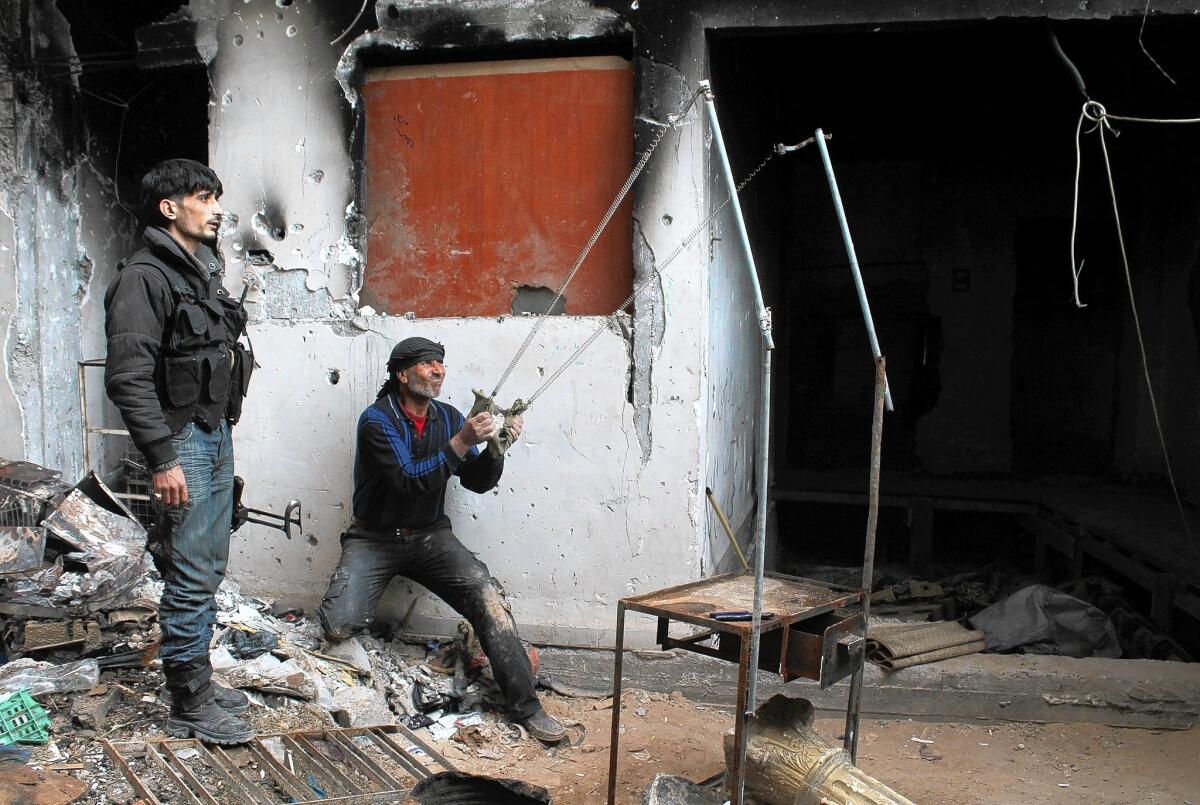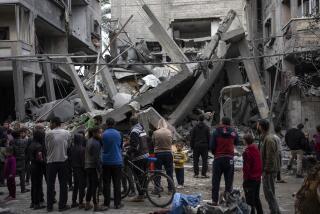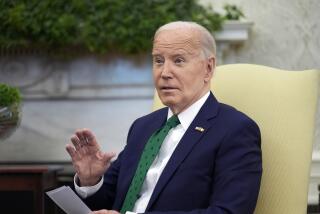As Syrian election looms, government slams U.N. envoy Lakhdar Brahimi

BEIRUT — As indications mounted that Syrian President Bashar Assad will seek reelection, the government lashed out Friday at a United Nations mediator who said an election could doom U.N.-sponsored peace talks meant to end the 3-year-old civil war.
Syria’s top official spokesman charged that Lakhdar Brahimi, the U.N. and Arab League peace envoy, had “overstepped” his duties by saying that Syria’s apparent plans to forge ahead with an election despite the conflict could in effect end the so-called Geneva peace process.
“Brahimi, by his talk, has overstepped his missions and powers,” Omran Zoubi, the Syrian information minister, said in comments carried in state media.
A day earlier, Brahimi declared that elections would probably prompt opposition delegates to walk away from the high-profile diplomatic peace initiative. Backing the Geneva talks are the United States, which has supported the opposition, and Russia, an Assad ally.
“If there is an election, then my suspicion is that the opposition … will probably not be interested in talking to the government,” Brahimi, chief mediator in the Geneva talks, told reporters Thursday in New York.
Representatives of the opposition fighting to oust Assad have said repeatedly that any election held while the nation’s civil war was still raging would be a sham, especially if Assad was on the ballot.
Assad, whose term ends in July, has not definitively declared his candidacy, though he has frequently hinted that he would seek a third seven-year term. Such a decision rests with the Syrian people, Assad has told interviewers.
No specific date has been set for a presidential election, which has confused many Syrians and left an aura of mystery about the prospective vote. But preparations appear to be underway for national balloting.
The Syrian parliament has been modifying the nation’s election law in accordance with a new constitution approved in 2012. The constitution allows for multiple candidates and political parties. Critics, however, say the conflict and Assad’s tight hold on the security services and government agencies would ensure his reelection.
In Damascus, the capital, and elsewhere, work crews have been busily painting the Syrian national colors on storefronts. The government has also been organizing boisterous pro-Assad demonstrations, rallies that appear designed in part to demonstrate a grass-roots movement for the president’s reelection.
Government officials have been quoted lavishing praise on Assad, who has been blamed by critics for the deaths of tens of thousands during the war. He is “the real guarantee of the security and stability of Syria,” Deputy Foreign Minister Faisal Mekdad said.
In an interview with the New China News Agency this week, Mekdad said Syria would be ready “in case the elections took place.” Efforts would be made to ensure that all citizens could participate, he said.
Government officials clearly want to avoid “having a state of leadership vacuum in Syria,” Mekdad said.
No date has been set for the resumption of the Geneva peace negotiations. Two rounds of talks have failed to produce any substantial agreement. The Syrian government says it is ready to continue talks.
A major goal of the Geneva process is to name a transitional government that would lead Syria until a new democratic government could be elected. The opposition argues that Assad cannot be part of any transitional administration, a position rejected by Syrian government negotiators. That fundamental disagreement has halted any progress.
Assad was first elected in 2000 in unopposed balloting after the death of his father, President Hafez Assad. He was reelected in 2007, receiving more than 97% of the vote, according to official tallies.
This week is the third anniversary of the Syrian conflict, which began in March 2011 with street protests that led to a government crackdown. The war has left more than 100,000 dead, ravaged the economy, reduced many neighborhoods and towns to rubble and resulted in more than 2.5 million refugees fleeing Syria, according to the U.N.
Millions of others in Syria have been forced from their homes, officials say. The U.N. calls the Syrian war a humanitarian “catastrophe” with no end in sight.
Special correspondent Nabih Bulos in Amman, Jordan, contributed to this report.
More to Read
Start your day right
Sign up for Essential California for news, features and recommendations from the L.A. Times and beyond in your inbox six days a week.
You may occasionally receive promotional content from the Los Angeles Times.





